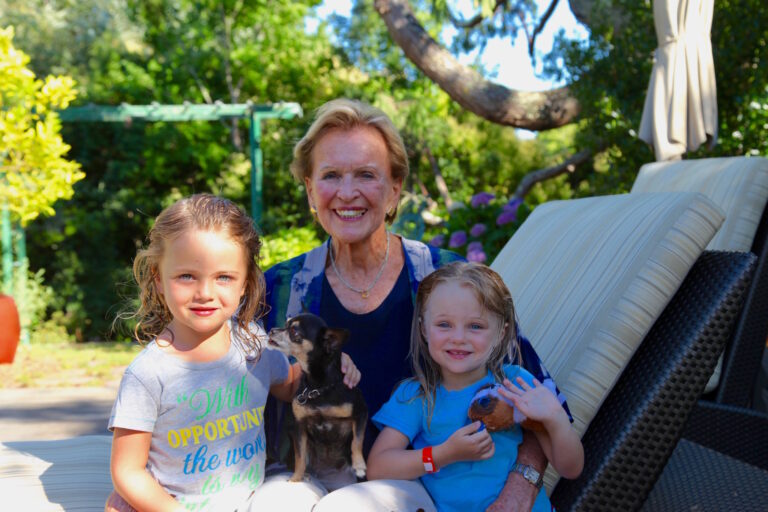“Berea came down to me from both sides of the family,” explained Peggy Lumpkin Keon, a retired career consultant. She first heard of the College when she was a child, when her grandmother told her of her visit to a school in Kentucky where students worked campus jobs and didn’t pay tuition.
“I remember thinking that makes so much sense, that students have that opportunity,” she said. “I thought at that young age that all colleges should do that.”
A deeper connection, though, lay on her mother’s side of the family. Peggy is the great-great granddaughter of William Hart, who served as treasurer and trustee for Berea College in the 1870s, alongside founders and early leaders John G. Fee, J.A.R. Rogers, Henry Fairchild and John Hanson. In 1981, Mary Hart Green Lumpkin, Peggy’s mother, established the William Hart Prize Fund in his honor.
Despite the history, Peggy would not visit Berea until just a few years ago, shortly after President Lyle Roelofs was inaugurated.
“My youngest daughter and I decided to come to Berea to see what it was all about,” Peggy said. “We were both very happy to be there. We liked the community and felt really good about the experience.”
That same year, 2012, Peggy changed the name of the William Hart Prize Fund to the William Hart Fund for Women and Gender Studies. In 2016, she created the Margaret L. Keon Scholars Program in Women and Gender Studies, which helps provide students with hands-on experience at nonprofit organizations that focus on improving the lives of women and girls. Passionate about women’s issues, Peggy was always impressed with the College’s history of coeducation and commitment to gender equality.
“Education is so critical–people learning to think and having exposure to something besides their own small community makes all the difference in the world.”
Peggy Lumpkin Keon
“I couldn’t be more enthusiastic about the Sixth Commitment,” she said, referring to Berea’s commitment to democratic community and gender equality. Peggy explained her passion for women’s issues stemmed from her experience as a young woman looking for work in the 1950s.
“I went to New York,” she said, “and found doors were not open to women because they assumed women would marry and start families. They didn’t want to invest time in training me. We’ve come a long way, but we have a long way to go.”
Though gender equality is important to her, the most compelling aspect of Berea’s mission for Peggy is the opportunity for students who otherwise cannot afford college to be able to earn a degree and not be saddled with debt.
“That’s compelling because there are very few schools like it in the country,” she said. “Education is so critical—people learning to think and having exposure to something besides their own small community makes all the difference in the world. It’s satisfying to know I am contributing to that process.”


